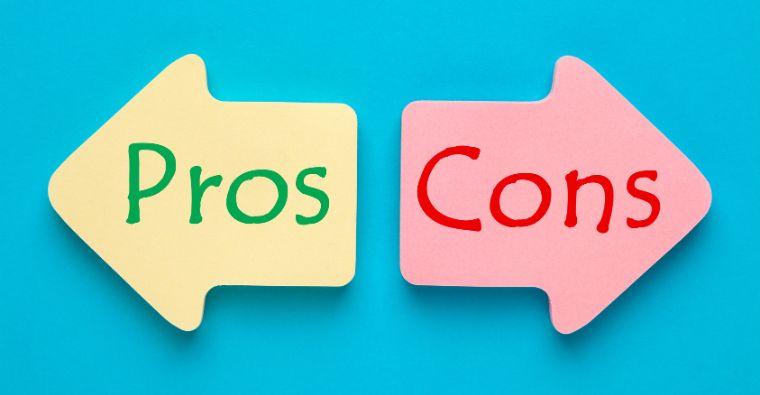Pros of Data Collection on the Internet
Enhanced Personalization
Benefit: Companies can personalize recommendations, ads, and content based on users’ past behaviors and preferences. This leads to more relevant experiences, increasing user satisfaction.
Example: Streaming services like Netflix and Spotify use data to suggest shows or songs that users are more likely to enjoy.
Improved Customer Service and Support
Benefit: Data collection allows businesses to track customer interactions, providing insights that can improve customer support and resolve issues faster.
Example: Chatbots on e-commerce sites use customer data to quickly respond to inquiries and suggest products based on recent browsing activity.
Targeted Advertising
Benefit: Marketers can use data to reach specific audiences based on demographics, interests, or online behavior, making advertising more effective and reducing irrelevant ads.
Example: Social media platforms offer advertisers tools to target users who are more likely to be interested in their products, based on users' past likes, clicks, and searches.
Informed Business Decisions
Benefit: Data collection provides companies with valuable insights into trends, customer preferences, and potential areas for growth, enabling data-driven decision-making.
Example: Businesses use analytics tools to see which products are trending or where users drop off in the purchase process, allowing them to adjust strategies.
Improved Public Services
Benefit: Governments and public institutions use data to understand and respond to public needs, enhance infrastructure, and improve healthcare services.
Example: Health agencies collect data on disease outbreaks to better allocate resources and issue timely public health warnings.
Cons of Data Collection on the Internet
Privacy Invasion
Drawback: Data collection can feel intrusive, as companies often gather information about browsing habits, locations, and even personal communications without explicit consent.
Example: Apps that collect location data without the user’s awareness can lead to privacy concerns about being tracked.
Security Risks and Data Breaches
Drawback: The more data is collected, the greater the risk of it being compromised in a cyber-attack. Breaches can expose sensitive personal information, causing identity theft and financial loss.
Example: Major breaches at companies like Equifax and Facebook have led to the exposure of millions of users’ personal data.
Potential for Misuse and Manipulation
Drawback: Collected data can be used for manipulative purposes, such as misleading political campaigns or creating biases in ad targeting.
Example: Misuse of data on social media has been associated with manipulating public opinion and influencing election outcomes.
User Anonymity Compromise
Drawback: Even when data is anonymized, sophisticated algorithms can often re-identify individuals, compromising anonymity and privacy.
Example: Anonymized health data sets have been shown to reveal patient identities when cross-referenced with other public data sources.
Lack of Transparency and Control
Drawback: Users often don’t have a clear understanding of what data is being collected or how it’s being used, leading to a lack of control over their own information.
Example: Some companies bury their data practices in long terms-of-service documents that users rarely read or understand.




Comments (0)